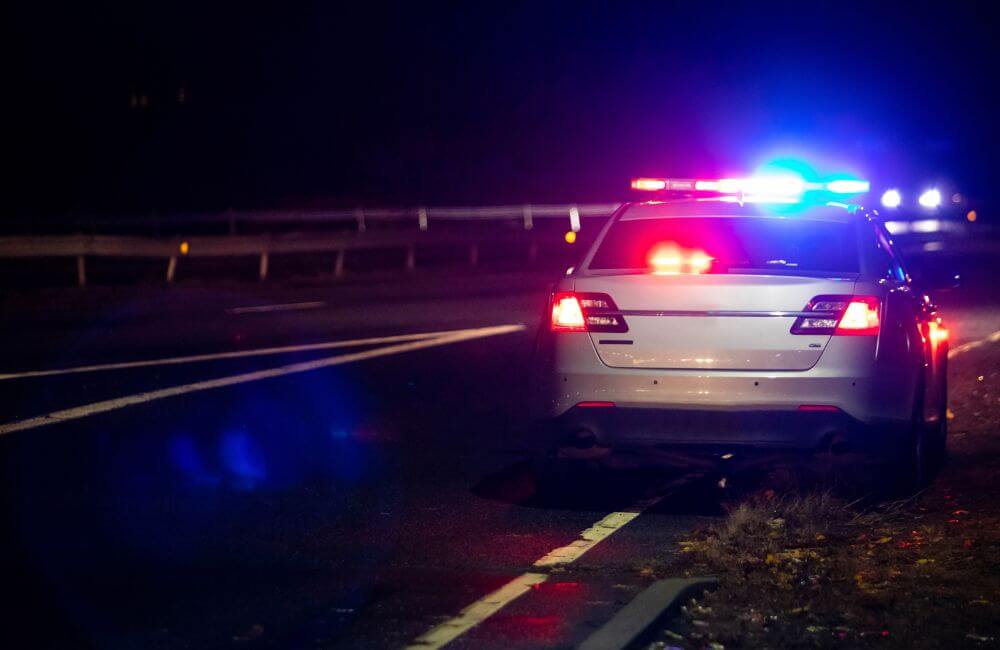No Chase Law States: A Comprehensive Overview
In recent years, the topic of “no chase law states” for motorcycles has gained significant attention in the United States. This article provides an in-depth overview of the states that have implemented such laws, the reasons behind their adoption, and their impact on public safety and law enforcement.
Additionally, we will explore common misconceptions, advantages, and disadvantages of no chase laws, along with case studies and alternative approaches.
What is a ‘’no chase law’’?
A “no chase law” restricts or regulates the ability of law enforcement officers to engage in high-speed pursuits of suspects fleeing in vehicles. The primary goal is to reduce the risk of injury or death to innocent bystanders, police officers, and suspects. These laws provide guidelines for officers to follow when initiating and conducting pursuits.

Different states mandate that law enforcement agencies develop protocols that officers must adhere to before and during vehicle chases. These guidelines aim to balance the duty to apprehend offenders with the need to consider the risks posed by high-speed pursuits.
History of no chase law states
The implementation of no-chase laws in the United States dates back to the late 20th century. Increasing accidents and injuries from high-speed pursuits led to a reevaluation of police pursuit policies.
Initially, no chase policies focused on limiting pursuits for non-violent offenses, but over time, they expanded to include more serious crimes, always prioritizing public safety.
motorcycle no chase law states
In some states, specific no chase laws for motorcycles have been implemented. These laws provide guidelines for officers to consider safer alternatives to high-speed chases, such as using data from traffic cameras or following at a slower speed.
States with No Chase Laws for Motorcycles:
- Alabama
- Alaska
- Arizona
- Arkansas
- California
- Colorado
- Connecticut
- Delaware
- District of Columbia
- Florida
- Georgia
- Hawaii
- Idaho
- Illinois
- Indiana
- Kentucky
- Louisiana
- Maine
- Maryland
- Massachusetts
is it illegal for a cop to chase a motorcycle
Police personnel are free to chase motorcycle riders in public. However, because of the possibility of motorcycle accidents and fatalities (both for the police and the people being pursued), the service is frequently discontinued. Certain states have regulations in place prohibiting police officers from pursuing motorcyclists.
It’s crucial to remember that if a motorcyclist is suspected of committing a major, potentially fatal offense, police officers are permitted to follow them. Police must consider both the driver’s license status and public safety before pursuing a motorcycle.
Read More – best Los Angeles Motorcycle Accident Attorneys
no chase law for motorcycles: State-Specific Case Studies
Understanding Their Unique Regulations and Approaches
1. Does Indiana Have a No Chase Law for Motorcycles?
In Indiana, there isn’t a dedicated “no chase” statute specifically for motorcycles. However, police pursuit policies can vary by department and jurisdiction. For example, Metro Police policy states that officers cannot give chase solely for a traffic violation or if someone flees. Pursuits may be authorized if there is a “reasonable suspicion” of a felony or if the officer witnesses a misdemeanor offense.
2. Does Florida Have a No Chase Law for Motorcycles?
In Florida, it is not illegal for police to chase motorcycles, but there are restrictions. Police cannot chase a motorcycle for minor traffic offenses. The Motorcycle No Chase Law prohibits pursuits unless there is reasonable suspicion of a serious felony or reckless driving. This law is specific to motorcycles and does not apply to other vehicles.
3. Does Utah Have a No Chase Law for Motorcycles?
Utah does not have a specific “no chase” law for motorcycles. The Utah Highway Patrol allows pursuits only when the rider is suspected of a violent felony or poses an immediate threat to public safety. Officers must consider factors like the nature of the offense, traffic, and weather conditions.
4. Does Oklahoma Have a No Chase Law for Motorcycles?
Oklahoma lacks specific legislation for high-speed pursuits involving motorcycles. The Oklahoma Highway Patrol’s policies prioritize public safety and provide guidelines for officers. Similar to Florida, pursuits are limited to cases involving serious felonies or reckless driving.
5. Does Missouri Have a No Chase Law for Motorcycles?
Yes, Missouri enforces a “no chase” rule for motorcyclists, prohibiting high-speed pursuits to minimize risk. Law enforcement uses alternative strategies, like identifying riders through license plates, to handle motorcycle-related issues.
6. Does Illinois Have a No Chase Law for Motorcycles?
Illinois has comprehensive guidelines for motorcycle pursuits under its no chase law. It emphasizes risk assessment, the severity of the offense, and potential public danger. It also advocates using technology and inter-jurisdictional coordination.
7. Does Colorado Have a No Chase Law for Motorcycles?
Colorado does not have specific laws for motorcycle pursuits. The Colorado State Patrol’s policies guide officers in evaluating risks and deciding on pursuits, with a strong focus on public safety.
8. Does Arizona Have a No Chase Law for Motorcycles?
Arizona has high-speed chase guidelines but no special regulations for motorcycles. The Arizona Peace Officer Standards and Training Board sets standards to ensure police prioritize public safety during pursuits.
9. Does Minnesota Have a No Chase Law for Motorcycles?
Minnesota does not have laws specifically for high-speed motorcycle chases. The Minnesota State Patrol’s pursuit policies prioritize public safety and provide guidelines for officers during pursuits.
10. Does Louisiana Have a No Chase Law for Motorcycles?
Louisiana lacks a specific “no chase” law for motorcycles. Policies vary by law enforcement agency. It’s advisable to consult local authorities for detailed information.
11. Does Michigan Have a No Chase Law for Motorcycles?
Michigan’s no chase law for motorcycles emphasizes public safety and life preservation. Pursuits are permitted only if there is a clear, immediate threat to public safety. Officers are encouraged to use alternatives like helicopter support or surveillance.
12. Does Tennessee Have a No Chase Law for Motorcycles?
Tennessee does not have specific legislation for high-speed motorcycle pursuits. The Tennessee Highway Patrol has policies that guide officers during pursuits, emphasizing public safety.
13. Does Oregon Have a No Chase Law for Motorcycles?
Oregon does not have explicit laws for high-speed motorcycle pursuits. The Oregon State Police’s policies prioritize public safety and guide officers during pursuits.
14. Does Wisconsin Have a No Chase Law for Motorcycles?
Wisconsin lacks specific legislation for high-speed motorcycle pursuits. The Wisconsin State Patrol has policies that prioritize public safety and guide officers during pursuits.
15. Does California Have a No Chase Law for Motorcycles?
California’s no chase law for motorcycles, under Vehicle Code Section 2814.2, provides guidelines for law enforcement. The law emphasizes public safety, considering factors like road conditions and traffic density.
16. Does New York Have a No Chase Law for Motorcycles?
New York’s no chase law for motorcycles, known as the “Motorcycle Safety and Awareness Act,” aims to reduce high-speed pursuit dangers. It emphasizes training and decision-making skills for officers during motorcycle pursuits.
17. Does Texas Have a No Chase Law for Motorcycles?
Texas’ regulations, under Texas Transportation Code Section 545.421, govern motorcycle pursuits. The law focuses on public safety and factors such as offense severity and traffic conditions.
18. Does Ohio Have a No Chase Law for Motorcycles?
Ohio does not have laws specifically for high-speed motorcycle pursuits. The Ohio State Highway Patrol’s policies guide officers in pursuit decisions, considering safety for all involved.
19. Does Pennsylvania Have a No Chase Law for Motorcycles?
Pennsylvania does not have specific legislation for motorcycle pursuits. The Pennsylvania State Police’s policies emphasize public safety and risk evaluation before engaging in pursuits.
20. Does Michigan Have a No Chase Law?
Michigan does not have specific laws for high-speed motorcycle pursuits. The Michigan Commission on Law Enforcement Standards provides guidelines for safe pursuit practices.
21. Does Georgia Have a No Chase Law for Motorcycles?
Georgia lacks specific laws for high-speed motorcycle pursuits. The Georgia State Patrol’s procedures prioritize public safety and provide instructions for officers during pursuits.
22. Does North Carolina Have a No Chase Law for Motorcycles?
North Carolina does not have specific regulations for motorcycle high-speed chases. The North Carolina Highway Patrol’s procedures emphasize public safety and require officers to assess various factors before pursuing.
23. Does Virginia Have a No Chase Law for Motorcycles?
Virginia does not have laws specifically for motorcycle high-speed chases. The Virginia State Police’s procedures guide officers in assessing risks and making pursuit decisions to prioritize public safety.
24. Does Washington Have a No Chase Law?
Washington does not have specific legislation for high-speed motorcycle pursuits. The Washington State Patrol’s policies emphasize public safety and risk evaluation before engaging in pursuits.
25. Does Alabama Have a No Chase Law for Motorcycles?
Alabama lacks specific laws for high-speed motorcycle pursuits. The Alabama Law Enforcement Agency’s policies prioritize public safety and provide instructions for officers during pursuits.
26] Does Kentucky have a no chase law for motorcycles?
Kentucky does not have explicit laws or regulations pertaining to high-speed pursuits involving motorcycles. However, the Kentucky State Police has established policies that prioritize public safety and provide guidelines for officers during pursuits.
27] Does Mississippi have a no chase law for motorcycles?
Mississippi doesn’t have any regulations that are specially designed for motorbike high-speed chases. The Mississippi State Police, however, has developed procedures for officers to follow during pursuits and prioritize public safety.
Advantages and Disadvantages of no chase law
Advantages:
- Enhanced Safety: Reduces the risks associated with high-speed chases, potentially lowering collision, injury, and fatality rates.
- Safer Alternatives: Encourages the use of GPS tracking, driving simulator training, and vehicle immobilization techniques.
- Public Support: Gains support due to the prioritization of public safety.
Disadvantages:
- Suspect Escape: This may allow suspects to evade arrest more easily.
- Limited Enforcement: Effectiveness depends on strict adherence and implementation.
- Balancing Act: Challenging to balance crime apprehension and public safety.
Alternatives to High-Speed Chases
Law enforcement agencies have several alternatives to high-speed chases to minimize risks:
- GPS Tracking Technology: Allows tracking of suspect vehicles using GPS tags.
- Driving Simulator Training: Helps officers handle high-pressure situations better.
- Emergency Smartphone Alerts: Notifies nearby drivers to reduce accident risks.
- Vehicle Immobilization: Tracks and remotely disables a fleeing vehicle.
Risks Associated with High-Speed Chases
High-speed chases pose significant risks:
- Injury and Death: This can result in collisions, injuries, and fatalities.
- Endangering Bystanders: Puts innocent bystanders at risk.
- Traffic Violations: Many pursuits start from traffic violations, which may not justify the risk.
Conclusion
Understanding which states have no chase laws for motorcycles is crucial for riders across the United States. Familiarizing themselves with these regulations helps motorcyclists prioritize safety and be aware of potential legal repercussions.
By staying informed and riding responsibly, motorcyclists can enjoy their passion while respecting the law. Always research and stay updated on the no chase laws in your state.



